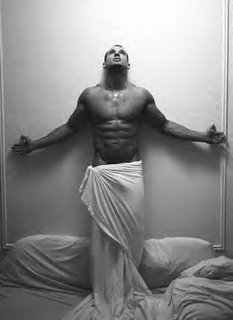
A Glass Half Full
The person I was with while I was writing the last white life book, or at least for the first four chapters of writing Redux wanted to be a writer. While I drifted into sleep he sat up, the glow of the laptop on his face, clicking away, clicking hard, trying to chisel something. I don’t think he got very far and he wasn’t very good. The why is very simple. He wanted to use very big words, words he himself didn’t know the meaning of. I said to him once, in a moment of kindness, the different between your writing and mine is that I reveal and you obfuscate. The energy and passion that ought to have been expended in telling the story was wasted in running from it to tell something much more comforting to him and ultimately much less satifying. But really this is the difference between the good and the bad. A writer ought to be courageous. I know from my own experience that all through the entire dark journey, but especially at the very beginning, when I worked on Virgins there was the internal voice saying, “Don’t tell that.” “Don’t go there.” For most of us the temptation to lie, to evade life in all of its… bigness and ambiguity and even sexiness is a great one. We want to keep things bitesize, handle-able and that includes ourselves. The lamb in the twenty-third psalm says the Lord “maketh my to cup overflow.” Well, we don’t want a mess on our hands and are often content with a glass half full.
Maybe fiction is a word that has been damaged. It sets forth the idea that writers are liars and that by intense imagination and fleeing reality we turn out stories. But what a good writer does is really much more connected to the words mystery, myth, mystic, which come from the Greek, to look at things through half shut eyes, that is to look at them both like a man going to sleep, and like someone who is peering deeply into a truth, staring at it. Rosario Castellanos said of herself she was an eye, and I’ll add to that a witness. It would be nice to say we tell it like it is if we are good, but I think it’s better just to say a write tells is as best she can, as truthful as she can be.
The problem with young writers, especially young males, especially young white males is that of truth. If you are red or brown or black all over then part of your coloring is centuries of having been bruised by other people’s versions of the truth, having your mouth taped shut. There is an urgency to tell, if not THE TRUTH then your truth. If you have breasts, if our breasts desire other breasts, if you are queer, then no one hears you and so in your writing you want to shout a little. But there is a lie in whiteness and straightness. Especially if you have balls. Namely that if you are bleached out enough, that is white enough, and pulled straight enough, all of your kinks worked out, then you have nothing to lose and everything to gain by evasion. And so white men evade. We have agreed for so long that they have it all. They don’t, and as they learn that, as Addison and Tommy and Matt learn it, I suspect we will hear more desperate and honest voices from them. Why is it so important for the writer to tell the truth, and why is this truth telling so terrible? Why does what I write here reflect who I am? Judge who I am? Because it shapes me. Because, as Anzaldua said: When we write we are carving our own faces.

<< Home